Ensure your Future Success
Be at the Forefront of Tomorrow's Economy
#count%
of all dit graduates
will find a job
within 2 months

Become a Problem Solver
#society #sustainability #ethics #economics #finance #investment #businesscycle #growth #labourmarketpolicy #socialpolicy
#economicpolicy #environmentalprotection #globalisation #banks #healthcare #NGOs #economics #businesseconomics
Studying economics will provide you with problem-solving skills. You develop skills and strategies that enable you to analyse complex issues and make responsible decisions in the interest of society as a whole. The basis for this is a sound theoretical knowledge. But it doesn't stop at theory: soon you will be working on problems such as income distribution, environmental protection or unemployment. For politics, you develop proposals for action on questions of globalisation or health care. Economists like to use a special technique for this: modelling. In this way, the multifaceted problems in society, the economy and politics can be analysed more systematically.
The focus of the degree programme is on the practical application of the contexts and methods learned. The core of the programme is not the derivarion and consolidation of theoretical knowledge, but its application to contemporary problems. In contrast to university education in economics, you will find a clear link between theory and practice in your studies at the Deggendorf Institute of Technology.
Fact Sheet Economics
Degree: Bachelor of Science (B.Sc.)
Duration: 7 semesters (3.5 years)
ECTS points: 210
Start: October (winter semester)
Location: Deggendorf
Taught in: German
Application period: 15 April - 15 September
Admission requirements:
- General German university entrance qualification, or please check your eligibilty at the DAAD if you own an international qualification
- Language requirements
Prerequisites :
- Sufficient knowledge of basic scientific subjects is necessary
Key aspects:
- National leadership
- Financial markets
- Globalisation
- Environment
- Healthcare sector
Postgraduate opportunities:
- Master Human Resource Management
- Master International Tourism Development
- Master Strategic and International Management
- Master Business Informatics (additional computer science knowledge necessary)
Fees:
- No tuition fees, only student union fee
- International students from non-EU/EEA countries are required to pay service fees for each semester. Click here to read about our service fees.
Contact :
- Course enquiries: vwl-info@th-deg.de
- General enquiries about studying at DIT: welcome@th-deg.de | prospective student advisors
Career Prospects
Seldom has the European public discussed economic issues so intensively and with so much passion as it does today in the wake of the European debt crisis. Unfortunately, when it comes to complex issues, expertise cannot always keep pace with the verve and passion of the discussants.
On the one hand, this makes it clear that economics has arrived at the centre of society. On the other hand, it also reveals a vacuum that the traditional, theory-based teaching of economics obviously cannot or will not close. Too often the applicability of the strongly formalised model economy is limited to problems that do not exist outside one's own guild. The development of proposals for action for concrete problems of national and international politics is quickly dismissed as profane by academics and is rather rare outside the expert councils.
This is precisely where the Economics course of studies should start. The core of the programme is not the derivation and deepening of theoretical knowledge, but its application to contemporary problems.
Target group
The Bachelor's programme is aimed at students who wish to work later in ministries, associations, parafisci, in the banking and insurance sectors, in international organisations or in scientifically based policy advice. It differs from the university education in economics in that it clearly combines theory and practice, concentrates on analysis and problem-solving competence, has the task of strictly fixing the model, firmly anchors events on the market and state failure in the curriculum, and constantly reflects on ethics and justice in business.
Subject Overview
Overview of courses and lectures, SWS (Semesterwochenstunden = weekly hours/semester) and ECTS (European Credit Transfer and Accumulation System) in the Bachelor's degree Economics.
| 1. Semester | SWS | ECTS |
| Micro Economics | 4 | 6 |
| Quantitative Methods 1 | 5 | 6 |
| General Business Administration | 4 | 5 |
| Ethics and Justice | 4 | 5 |
| Public Law and Economic History | 4 | 5 |
| Macro Economics | 4 | 5 |
| 2. Semester | SWS | ECTS |
| Basics of Finance | 4 | 5 |
| Financing and Investment | 4 | 5 |
| International Economics | 4 | 5 |
| Behavioural and Industrial Economics | 4 | 5 |
| Quantitative Methods 2 | 5 | 6 |
| Economic Foreign Language | 4 | 4 |
| 3. Semester | SWS | ECTS |
| Area of Application: Governance (mandatory) | ||
| Game Theory and Econometrics | 4 | 5 |
| Regional and Educational Economics | 4 | 5 |
| Area of Application: Financial Markets (Compulsory Elective Subject) | ||
| Financial Industry and Risk Management | 4 | 5 |
| Economy and Growth | 4 | 5 |
| Area of Application: Globalisation (Compulsory Elective Subject) | ||
| International Economic Policy | 4 | 5 |
| Development Economics | 4 | 5 |
| Area of Application: Environment (Compulsory Elective Subject) | ||
| Environmental Economics and Politics | 4 | 5 |
| Mega Trends in Economy and Society | 4 | 5 |
| Area of Application: Health Economics (Compulsory Elective Subject) | ||
| Health Economics | 4 | 5 |
| Current Research Questions in Health Economics | 4 | 5 |
| 4. Semester | SWS | ECTS |
| Area of Application: Government (mandatory) | ||
| Labour Market and Social Policy | 4 | 5 |
| Economic Development and Applied Empirical Economics | 4 | 5 |
| Area of Application: Financial markets (Compulsory elective subject) | ||
| Corporate Finance and Financial Products | 4 | 5 |
| Behavioral Finance | 4 | 5 |
| Area of Application: Globalisation (Compulsory elective subject) | ||
| Monetary Economics | 4 | 5 |
| Taxation and Tax Competition in an International Context | 4 | 5 |
| Area of Application: Environment (Compulsory elective subject) | ||
| Sustainability and Energy Efficiency | 4 | 5 |
| Resource Economics and Energy Policy | 4 | 5 |
| Area of Application: Healthcare (Compulsory elective subject) | ||
| Cross-Border Healthcare and Medical Tourism | 4 | 5 |
| Health Services Research and Demographic Change | 4 | 5 |
| 5. Semester | SWS | ECTS |
| Practical Semester (Internship 18 weeks and accompanying course) | 4 | 30 |
| 6. Semester | SWS | ECTS |
| Semester Abroad (Economics courses 15 ECTS + additional courses 15 ECTS) | - | 30 |
| 7. Semester | SWS | ECTS |
| Empirical Research Project | 4 | 7 |
| Case Studies in Current Economic Policies | 4 | 5 |
| Bachelor Thesis | 4 | 12 |
|
|
Overview of the Areas of Application:
Governance is obligatory for all students as an area of application for all students. Here, the structural failure of markets and the resulting necessity of state intervention in central areas such as the labour market, the education sector and social policy are addressed. The typical opportunities and risks that result from a federal state structure for the welfare of society as a whole are also the subject of the courses. The module Behavioural and Industrial Economics explicitly addresses the limits of economic modelling that is based on individuals acting with unlimited rationality and ignores the game-theoretical background of entrepreneurial action.
The financial markets area of application is not only recommended for students who have a future career in the banking and insurance sector in mind and who are particularly interested in financial market products and risk management. The inherent risks of uncontrolled capital markets and the need to regulate them at international level are also addressed in detail. Only by knowing the performance of capital markets on the one hand and the limits of this performance on the other hand can sensitivity to emerging financial market crises be achieved. In this area of application, too, the mathematical foundations laid in the first two semesters are used in several subjects. The business cycle forecast is rather unknown in conventional courses of study as part of the module Business cycle and growth theory. Surely every economist must know where economic growth comes from without neither increasing prosperity nor opening up further redistribution latitudes. In an application-oriented study programme, however, it seems superfluous to try to mathematically derive long-term growth trends spanning several decades in a variety of models. Rather, practice dominates the question of where the economy will move over the next five or ten years. For this prognosis, students are given various calculation methods in case-study-related classes.
The area of globalisation is not entirely independent of the scope of financial markets. Here, knowledge of monetary and real foreign trade theory and its political application is imparted. The student develops a feeling for the interdependence of political and economic action in view of the increasingly intertwined sales markets. In addition, this area aims to draw attention to the global prosperity gap between northern and southern countries and to sharpen the sense of responsibility for poverty reduction. What can contemporary development policy look like? What role do multinational institutions such as the World Bank and the Monetary Fund play, and what tasks can non-governmental organisations assume?
It is hard to imagine a modern economic degree course without the application area environment. As in the other fields of application, an arc is drawn from the economic analysis of market failure in the environmental sector to the political design of the boundaries of entrepreneurial action. The fact that the limits are also set on political design becomes clear when one compares the international environmental impacts with the national decision-making authority of the states. Against the background of the energy system transformation, a deliberate focus was placed on national and European energy policy. In this context, the overall societal efficiency of various energy sources, capacity problems in networks and problems with the storage capacity of energy as well as the resulting challenges for policymakers are dealt with.
The healthcare sector has become one of the most important economic sectors in Germany. The increasing demand for medical services and wellness offers at the local level is often the driving force behind regional development. At the same time, however, demographic change and the expected further increase in demand will pose considerable financial problems for the health care system. In addition, in a common European market that guarantees the free movement of goods and services, national efforts to limit the demand for insurance-financed health services are often limited. The application focus on health addresses all these questions and attempts to show structural lines of development.




